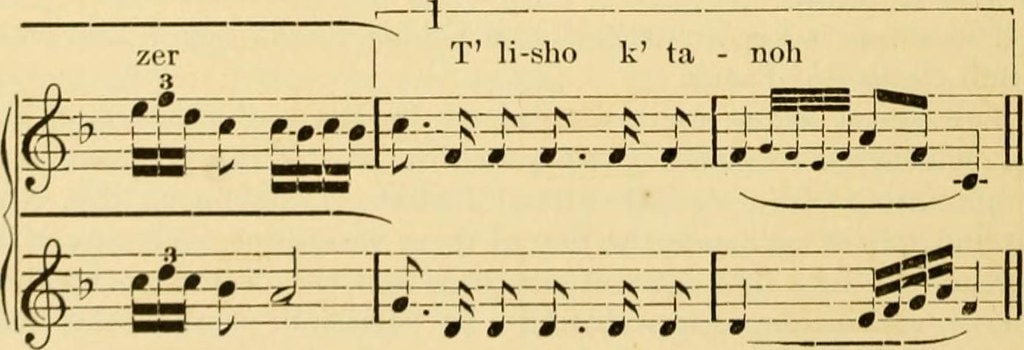You Know the Prayers, now Learn the LingoBy Gutenstein Family ISJL Education Fellow Becca Leaman
One of the things that many of us have been learning since the beginning of our Jewish educational journeys are prayers. We may start by simply listening, but soon we feel comfortable enough to move our mouths along and say words that sound remotely similar. Finally, we get to a stage where we can put the true Hebrew words with the melody. Many of us overlook the technicality that determined not just the tunes to our prayers, but the history that goes with it as well. Over the years, a basic structure for religious services developed, which should seem unsurprising. However, beyond the conventional format, worship leaders created tunes to differentiate the different types of services. For example, the morning service and afternoon service sound different, as will a weekday service if compared to a Shabbat service. This variation in liturgy is technically referred to as nusach. A unique nusach also identifies the Ashkenazic, Sephardic, and Mizrachic Jewish communities. Sometimes in services there is an expectation that because we are in attendance we know the meaning of what we are doing or saying. In reality, many congregants may not know the weight of the words that they say and repeat or their associated meaning. For example, the word amen is a word that is heard pretty consistently throughout the service but is often misunderstood. Semantically, amen means “so be it” and is often used as a response of agreement and affirmation to a prayer. The term niggun also is thrown around a lot without an explanation of its significance. A niggun refers to a wordless tune or melody. It is often seen either in-between or right before prayers. Chanting a niggun ensures that everyone in attendance is able to participate and learn the tune before adding in text. While all of these words are important, they still do not answer the question, where does all of this come from? There is a term, maqam, which refers to a musical notation that denotes the melody in which a specific word is supposed to be sung in the prayer or song. Maqam is something that is not seen as much recently in siddurim but impacted worship rituals throughout history. A similar concept to maqam, but possibly more recognized, is trope. This is a specific set of markings that identify the tune of words sung while chanting Torah and Haftorah. Many people who become a b’nei mitzvah know firsthand the painstaking task of learning both Torah and Haftorah trope. So, why does all of this matter? Are these words actually going to come in handy in our everyday lives? While they may not be worked into most conversations, unless someone is passionate about Jewish liturgy, they do paint a really interesting picture of what has historically gone into creating some of the parts of the service and how it has become what we continue to practice today. Whether or not we choose to work these new vocabulary words into our daily lives, we can at least walk away with some fresh new Jewish musical knowledge. |
- Home
- WHO WE ARE
-
WHAT WE DO
- PODCAST
- Conference >
- Education >
-
CULTURE
>
- Culture Overview
- Cultural Programming >
-
History
>
-
Encyclopedia of Southern Jewish Communities
>
- Alabama Encyclopedia
- Arkansas Encyclopedia
- Georgia Encyclopedia
- Florida Encyclopedia
- Kentucky Encyclopedia
- Louisiana Encyclopedia
- Mississippi Encyclopedia
- North Carolina Encyclopedia
- Oklahoma Encyclopedia
- South Carolina Encyclopedia
- Tennessee Encyclopedia
- Texas Encyclopedia
- Virginia Encyclopedia
- Encyclopedia Credits
- Oral History
-
Encyclopedia of Southern Jewish Communities
>
- SPIRITUALITY >
- DONATE
- Shalom Y'all
- Strategic Plan
- Southern & Jewish Blog
- Calendar
- Virtual Press Kit
|
©2024 Goldring/Woldenberg Institute of Southern Jewish Life
|

